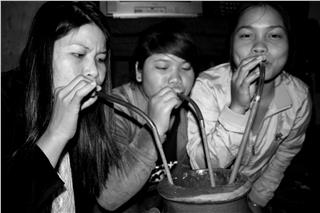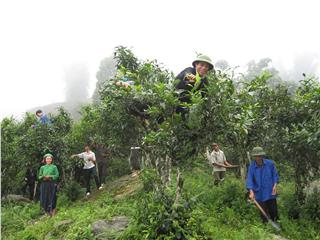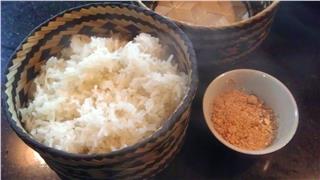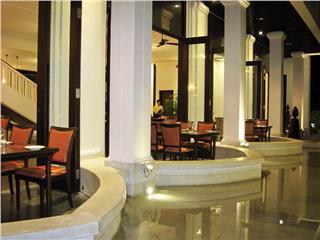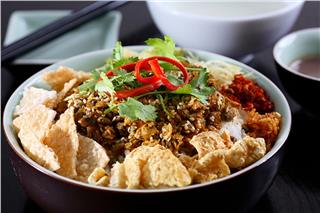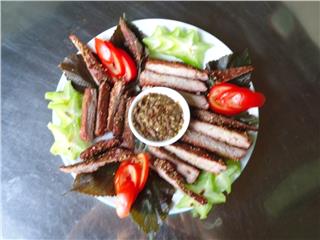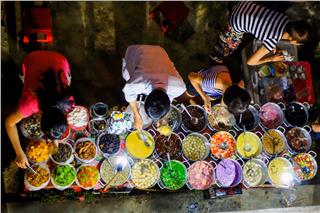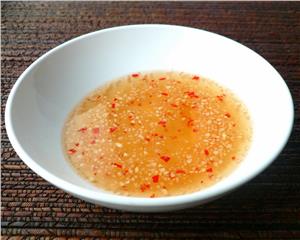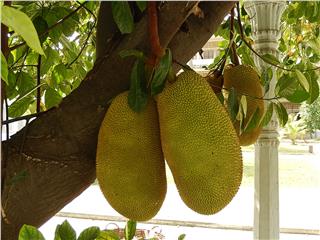Buon Ma Thuot Coffee
Thu, 06 Nov 2014 . Last updated Thu, 18 Jun 2015 14:25
-
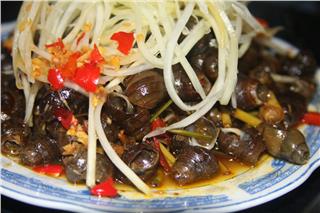 Tasty snail dishes in Vietnamese cuisine 6860 viewed
Tasty snail dishes in Vietnamese cuisine 6860 viewed -
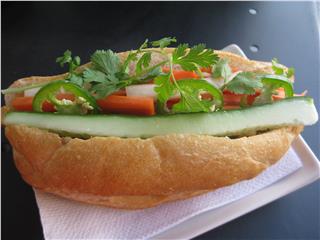 Taste of Banh Mi in Vietnam cuisine 6215 viewed
Taste of Banh Mi in Vietnam cuisine 6215 viewed -
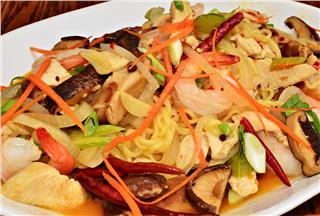 Delicious Vietnamese mushroom dishes 5839 viewed
Delicious Vietnamese mushroom dishes 5839 viewed -
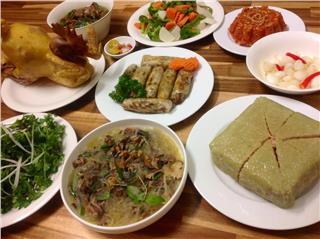 Traditional Vietnamese Tet food 5730 viewed
Traditional Vietnamese Tet food 5730 viewed -
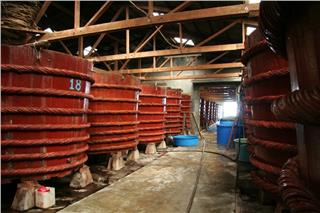 Phu Quoc fish sauce 5546 viewed
Phu Quoc fish sauce 5546 viewed -
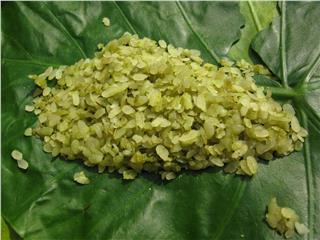 Com Vong special dish of autumn in Hanoi cuisine 5527 viewed
Com Vong special dish of autumn in Hanoi cuisine 5527 viewed -
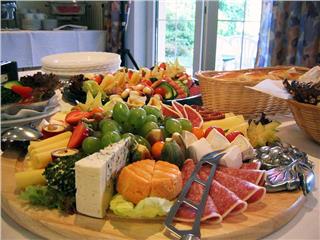 German food culture in Hanoi 5149 viewed
German food culture in Hanoi 5149 viewed -
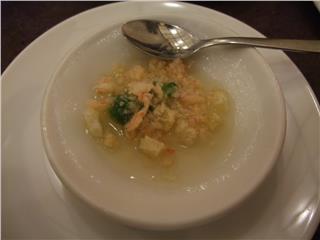 Assorted cakes in Hue cuisine 5029 viewed
Assorted cakes in Hue cuisine 5029 viewed -
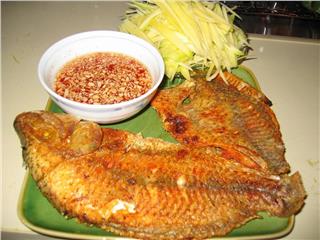 Delicious Vietnamese fish dishes 5001 viewed
Delicious Vietnamese fish dishes 5001 viewed
Like in many other countries in the world, the culture of coffee drinking was formed long ago in Vietnam. Coffee has become an indispensable drink. Visit to the Central Highlands, visitors cannot miss the chance to enjoy Buon Ma Thuot coffee.
Coffee was grown first in Ha Nam, Quang Tri and Hoa Binh. However, Buon Ma Thuot is the most well-known coffee growing place. From this city, coffee has been brought everywhere. Therefore, we can enjoy a cup of genuine Buon Ma Thuot coffee everywhere, even in Hanoi. Buon Ma Thuot 6-way junction is known as the poetic Ban Me 6-way junction, which has changed dramatically and become a witness to many ups and downs in the reclamation of this part of the Central Highlands. In the first years of the 20th century, people in Buon Me Thuot chose to settle down on a vast plain. It’s the Ban Me 6-way junction which connects local Ede ethnic villages and residential areas of Kinh people.
Buon Ma Thuot today has changed a lot. The young city, known as the metropolis of the Central Highlands, is now marked with the hectic pace of modern life. Buon Ma Thuot in March is wrapped in the pure white color of coffee flowers. According to some documents, coffee trees were brought to Vietnam by French priests in 1857. Arabica coffee trees were first grown around Catholic churches in some Northern provinces. Then they were brought to the Central Highlands and the Southeast. From the beginning when preparing for the French invasion of the Central Highlands, French explores and missionaries recognized the strategic position of this land in the Southern Indochina and its abundance of valuable natural resources that could be exploited to serve the Metropolitan France. Remarkably, the Central Highlands possesses the best type of soil suitable for growing industrial crops. This is one of the factors to make coffee in Buon Ma Thuot renowned.
Dak Lak is home to more than 90% of Ede ethnic people in Vietnam. These ethnic people have sustained their livelihood by growing coffee for ages. As Buon Ma Thuot has fertile basalt soil and typical natural conditions, it is an ideal place for coffee to grow well. Coffee beans here are of high quality and special taste compared to that in other places. That’s why makes coffee in Buon Ma Thuot stand out and creates competitive advantage for it. In this way, this land has soon become a coffee hub in the Central Highlands in particular and in Vietnam in general. Remarkably, the land produces premium Robusta coffee. Almost all districts in Dak Lak grow coffee. According to experts, quality of coffee in Buon Ma Thuot is spoken highly. It explains why Buon Ma Thuot is dubbed as the capital of coffee. Coffee crop takes up a significant position in this land.
Coffee really brings economic benefit to people in Dak Lak and becomes a major export item of Vietnam. With the aim of supporting Vietnam to develop hi-tech agriculture, Israel has carried out some projects in the Central Highlands, especially its coffee irrigation system. Unlike the traditional irrigation method, the Israel irrigation system uses underground piping to save water and generate high efficiency. The system is now employed at the Eatul Center for Industry and Agriculture in Eatul commune, Cu M’Gar district, Dak Lak province. The investor is Trung Nguyen group.
According to the International Coffee Organization (ICO), Vietnam’s coffee export turnover is 13% higher than that of Brazil, turning Vietnam into the world’s largest coffee exporter. Ealier, Vietnam ranked first in the world in exporting Robusta coffee. The coffee sector’s development has made a significant contribution to the Vietnamese economy. Endowed by nature with favorable conditions for growing coffee. On this fertile land, with experience handed down from generation to generation and new technology, Ede ethnic people have escaped poverty and even led a well-off life thanks to coffee growing.
They have tied their life to coffee crop since they are born. If it hadn’t been for coffee crop, Ede people on this plateau would have lost an important opportunity to sustain living conditions and Vietnam would have lacked a key industrial sector. The coffee forests turn red in October, making the beginning of the harvest season. Red coffee berries usher in a bumper crop for local farmers. With Heaven’s blessing, it is always sunny when the harvest season comes to this plateau. Coffee flowers come into bloom in March, wrapping the land in pure white color. When the harvest season comes, the land has a new look created by clusters of red coffee berries. The locals feel excited.
The development of coffee has gradually been attached to the development of local tourism. With nearly 100 years of experience of the locals and technological innovations, coffee in Buon Ma Thuot has taken a decent position in Dak Lak’s commodity production. Robust coffee has been the symbol and pride of Dak Lak in general and Buon Ma Thuot in particular on the path to international integration.
Buon Ma Thuot is said to be Vietnam’s capital of coffee. That is right. Apart from endless coffee plantations, this is the country’s largest coffee processing hub. We can get coffee beans after processing coffee berries. Coffee beans can be exported or undergo other processes to get coffee powder and other products. If it hadn’t been for the processing industry which brings about higher economic values, high coffee yields would have become meaningless. On the other hand, if living conditions of local coffee growers are not improved, coffee cannot grow well in this land. This is the simple coffee powder making process of Simexco Dak Lak Co.
Dried coffee beans are checked and those of poor quality are removed. This is an important step that ensures quality of coffee products. That’s what promotion or marketing programs cannot bring about. According to experienced producers, the way to roast coffee beans decides the taste and color of coffee powder. When processing, people may add flavoring to coffee. A skilled worker knows well how to make his products more attractive while keeping the original taste of coffee beans.
Proficient roasters know when the beans reach distinctive characteristics. Standard coffee beans become plump after being roasted. The powder of these beans is very light and soft. As said by local workers, they might get drunk on coffee when they just got involved in the coffee grinding and packaging process. Local Ede ethnic people roast coffee beans by manual means. These products are consumed by family members or to treat guests. Coffee is a beverage. Coffee in Buon Ma Thuot undergoes an uninterrupted process, growing and caring coffee crop, harvesting quality coffee beans, processing the beans by modern devices, and getting the final products of premium quality and satisfying food safety and hygiene requirements. In this way, coffee in Buon Ma Thuot has become the quintessence of Vietnamese coffee as well as Vietnamese cuisine.
Offering each other a cup of coffee has become a typical cultural feature in Buon Ma Thuot. Coffee is as important as rice and water in local life. Buon Ma Thuot’s coffee becomes known to all coffee drinkers. Coffee connoisseurs say the taste of Buon Ma Thuot’s coffee cannot be mistaken for any other types of coffee. It explains why Buon Ma Thuot’s coffee has been well-known throughout the world. The real value always lies in the quality of products, not only package or brand-name.
Coffee shops in Buon Ma Thuot are often invested heavily and bear distinctions. Many of them are marked by the Central Highlands style. If you have a chance to visit Buon Ma Thuot, do not forget to take the local coffee. Robusta coffee is mainly in use. A little Arabica coffee and some other flavorings are used to perfect the coffee. The ratio of Robusta to Arabica and other flavoring varies, depending on drinkers’ taste. It is widely thought that filter coffee is the best because it requires makers’ skillfulness and delicacy.
In Trung Nguyen coffee village at the center of Buon Ma Thuot city, tasty kinds of coffee are introduced. This is also on appealing tourist destination marked by typical structures in the Central Highlands and the unique space for coffee. In the village, tourists can explore nostalgic spaces in the greatness and tranquility of the land of forests and mountains. At the coffee museum, tourists can learn more about the journey of coffee through thousands of related objects.
Coffee lovers can come closer to the coffee culture of different countries in the world. In addition, antiques of great value of the Central Highlands culture are on display here. The museum provides a great source of information for those with love for this fertile basalt plateau. The lasting taste of the coffee in Buon Ma Thuot, a specialty of the plateau that has been well-known at home and aboard has inspired many poets and musicians. Therefore, those who ever came to this land cannot forget the taste of “Ban Me coffee”. In the early morning in this mountainous city, nothing is as great as sipping a cup of strong coffee while getting lost in the lyrical melodies. Our soul seems to become calmer and more serene on this plateau.
Source: VTC10 - NETVIET

